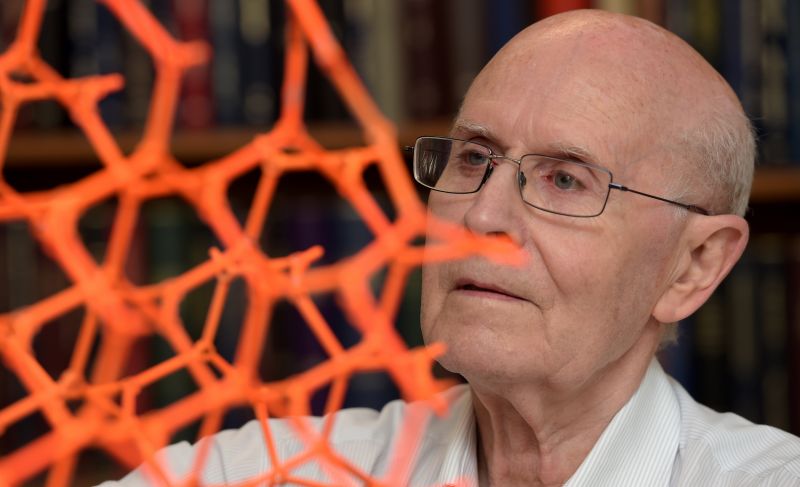Brasenose College alumnus Richard Robson has been awarded the 2025 Nobel Prize in Chemistry for his research into the development of metal-organic frameworks (MOFs). Robson, now a professor at the University of Melbourne, was recognised by the Royal Swedish Academy of Sciences alongside Professor Susumu Kitagawa from Kyoto University and Professor Omar M. Yaghi from the University of California, Berkeley.
MOFs, a novel type of molecular architecture, combine metal ions and organic molecules to form crystalline frameworks with large cavities, allowing other molecules to move in and out freely. Since their discovery, MOFs have been used to extract water from desert air and to trap and store carbon dioxide, among other applications.
Speaking to Cherwell, Robson described the award as “a great honour and pleasure”. Robson, who matriculated in 1955 to study Chemistry at Brasenose and later earned his DPhil from Oxford in 1962, first began exploring what would become MOFs in 1974. While building atomic models for his students in Melbourne, Robson realised that the models’ connection points determined the resulting molecular structure, leading him to wonder whether molecules could be designed to assemble into pre-determined shapes.
Continuing his interest, Robson combined copper and a four-armed organic molecule to create a crystalline framework with large cavities in 1989 – the first of what would later be coined by Yaghi as an MOF. In a paper published in the Journal of the American Chemical Society later that year, Robson outlined the novel architecture and its potential applications.
Within a year, Robson had proven his own ideas: he demonstrated that MOFs could allow for the exchange of ions, laying the conceptual foundation that future researchers – particularly Kitagawa and Yaghi – would build upon.
Professor Stephen Faulkner, Head of Oxford University’s Department of Chemistry, told Cherwell: “I am delighted to see the work of an Oxford Chemistry alumnus recognised with the Nobel Prize. This award serves as an inspiring reminder of the extraordinary impact our students and researchers can go on to make in the world.”
A spokesperson for Brasenose College told Cherwell: “We are immensely proud to congratulate our alumnus on being awarded the Nobel Prize in Chemistry. It is a joy to see one of our own excel in a field to which they have devoted so much of their life. Professor Robson’s work represents an incredibly impactful contribution to advancing humanity’s understanding of the chemical world, and Brasenose is delighted to see it receive global recognition.”
With this honour, Robson joins 57 other Nobel Laureates who studied or taught at Oxford, including two from Brasenose.


